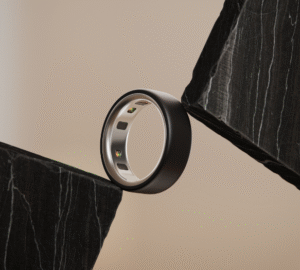Research shows that 14 to 25% of women have an irregular menstrual cycle. While a regular menstrual cycle typically ranges from 21 to 35 days with less than 7 days variability in length, an irregular cycle may be consistently shorter than 21 days in length, longer than 35 days in length, or may vary more than 7 days in length.
Some of the most common explanations (besides menopause) for irregular cycles include excessive exercise, eating disorders, or hormonal imbalances like polycystic ovarian syndrome (PCOS), primary ovarian insufficiency, and thyroid dysfunction.
“This irregularity can be disconcerting, particularly for women looking to start families and trying to predict their fertile window,” says Neta Gotlieb, PhD, Women’s Health Product Manager at Oura and clinical research scientist.
As part of Oura’s continued commitment to women’s health, our science team recently launched a study with our research partners, OB-GYNs Dr. Eleni Jaswa, MD, and Dr. Heather Huddleston, MD, at the University of California San Francisco (UCSF) Center for Reproductive Health.
The goal of the study is to see how the continuous physiological monitoring of the Oura Ring can be used to help women with irregular cycles and PCOS. “By learning more about cycle regularity, women can be more aware of what is happening in their bodies and plan or prevent pregnancy more accurately,” says Jillian Peacock, Research Project Manager at Oura, who is overseeing this study.
READ MORE: Researchers Use Oura to Study Changes Driven By The Menstrual Cycle
About the Study
In partnership with Oura, UCSF is recruiting participants with irregular cycles or a diagnosis of PCOS. Participants will be included in the study if they have been diagnosed with PCOS and/or have irregular menstrual cycles, defined as:
- A cycle length of 40 days or longer
- An average of 8 or less menses per year
- Cycle length variability greater than 7 days between cycles
Participants will be asked to wear an Oura Ring Gen3 for approximately six months and do daily at-home fertility monitoring using the Proov Complete Kit for a subset of that time. The data collected will then be analyzed by Oura data scientists, and the learnings will support even more inclusive solutions for people with varying cycles.
Why This Study Matters
This study will help bridge the existing gap in medical research. “In science and research, women and people with menstrual cycles have historically been excluded from studies,” says Gotlieb. “This has created a significant knowledge gap in this space, which has alarming implications. Individuals with atypical yet common patterns, like irregular cycles and PCOS, further suffer from this knowledge gap and lack available solutions designed with these cases in mind. We aim to change that.”
Advancing women’s health research by partnering with institutions like UCSF can also help enhance and expand Oura’s technology to better serve women. Currently, Oura offers Cycle Insights, a suite of reproductive features including period prediction and cycle phases. This study marks the initial stages of development for more inclusive and advanced solutions, and it is a pivotal step in our commitment to delivering tailored technology that comprehensively supports women’s unique health needs.
RELATED: UCSD Launches Study Using Oura To Explore Pregnancy
About the Oura Expert
Neta Gotlieb, PhD, is a Product Manager and former Lead Clinical Research Scientist at ŌURA researching and developing solutions focused on women’s health. Dr. Gotlieb received her Master’s degree from Tel Aviv University in Biological Psychology where her work focused on how stress impacts immune function and endocrine pathways. She earned a PhD from UC Berkeley where she studied Reproductive Neuroendocrinology and the circadian regulation of menstrual cycles, pregnancy, and birth. Recipient of the Women in Tech Global Technology Leadership Award and Women of Wearables’ Trailblazing Leaders in Women’s Health and FemTech.
Jillian Peacock is a Research Project Manager at ŌURA focusing on women’s health, with over 7 years of research experience ranging from athletic performance to healthy aging. Outside of work, you can find her running, enjoying the outdoors, and spending time with her family.











